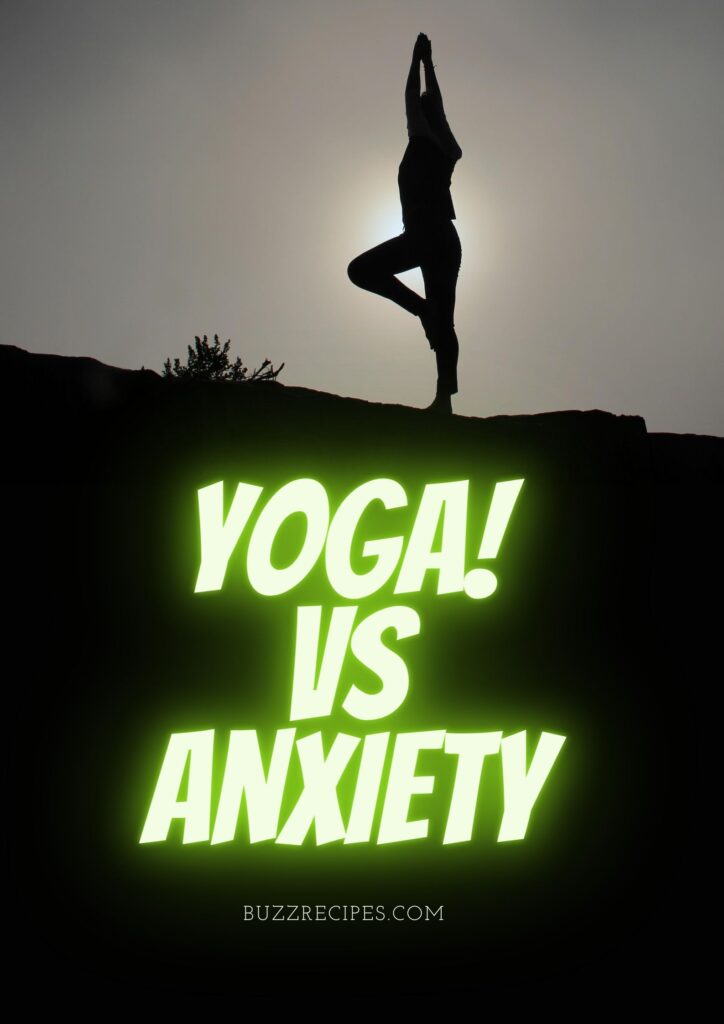For many people, yoga can help treat anxiety
A new study shows that yoga improves symptoms of generalized anxiety disorder, a condition of chronic nervousness and worry.
The researchers said that the results of this study indicate that yoga practice may help treat anxiety in some people.
Led by researchers at New York University’s Grossman School of Medicine, this study found that yoga is significantly better than standard stress management education for generalized anxiety disorder.
However, the researchers also found that it is not as effective as cognitive behavioral therapy (CBT), which is the gold standard form of structured talk therapy that can help patients identify negative thoughts to better deal with challenges.
“Generalized anxiety disorder is a very common disease, but many people are unwilling or unable to obtain evidence-based treatment,” said Naomi M. Simon, M.D., professor of psychiatry at New York University’s Langone School of Health. “Our research results show that yoga is safe and widely used, it can improve the symptoms of some people with this disease, and may be a valuable tool in the overall treatment plan.”
In this study, 226 men and women with generalized anxiety disorder were randomly divided into three groups-CBT, Kundalini Yoga or stress management education (a standardized control technique).
CBT treatment includes psychological education, cognitive intervention focused on identifying and adapting maladaptive thoughts and worries, and muscle relaxation techniques.

Kundalini Yoga includes body postures, breathing techniques, relaxation exercises, yoga theory and meditation/mindfulness exercises.
The stress management education control team received lectures on the physiological, psychological, and medical effects of stress, the anxiolytic effects of lifestyle behaviors (such as reducing drinking and smoking), and the importance of exercise and healthy eating. Homework includes listening to educational materials about stress, nutrition and lifestyle.
Each treatment takes three to six participants as a group, twice a week, each time for 12 hours, for 12 weeks, and 20 minutes of homework assignments every day.
This study found that after three months, it was found that CBT and yoga were far more effective in the treatment of anxiety than stress management.
you may also like: Dash Diet to Reduce High Blood Pressure
The study found that 54% of yoga practitioners met the criteria for relieving symptoms, compared with 33% in the stress education group. Researchers report that 71% of patients treated with CBT met these symptoms improvement criteria.
However, the researchers said that after six months of follow-up, CBT’s response was still significantly better than stress education, while yoga was no longer significantly better. This indicates that CBT may have a more potent and longer lasting effect in reducing anxiety.
According to the researchers, Generalized Anxiety Disorder is a common, impaired, and undertreated disease that currently affects approximately 6.8 million Americans. Although most people feel anxious from time to time, when worry becomes excessive and interferes with daily life, it is considered a disease.
CBT is considered the gold standard first-line treatment, but many people find it difficult to obtain CBT, including a lack of well-trained therapists and long waiting lists.
Medications can also be used, including antidepressants and sometimes benzodiazepines. However, not everyone is willing to take drugs, which may have adverse side effects.
Simon said: “Many people are already looking for complementary and alternative interventions, including yoga, to treat anxiety.” “This research shows that, at least in the short term, people with generalized anxiety disorder can try yoga. See if it works for them. Yoga is well tolerated, easy to use and has many health benefits.”
According to Simon, future research should aim to understand who is most likely to benefit from generalized anxiety disorder from yoga in order to help providers better personalize treatment recommendations.
She said: “We need more options to treat anxiety, because different people will respond differently to different interventions, and having more choices can help overcome barriers to care.” “Have a series of effective treatments. It can increase the likelihood that people with anxiety disorders are willing to receive evidence-based care.”
The research was published in the Journal of the American Medical Association.

